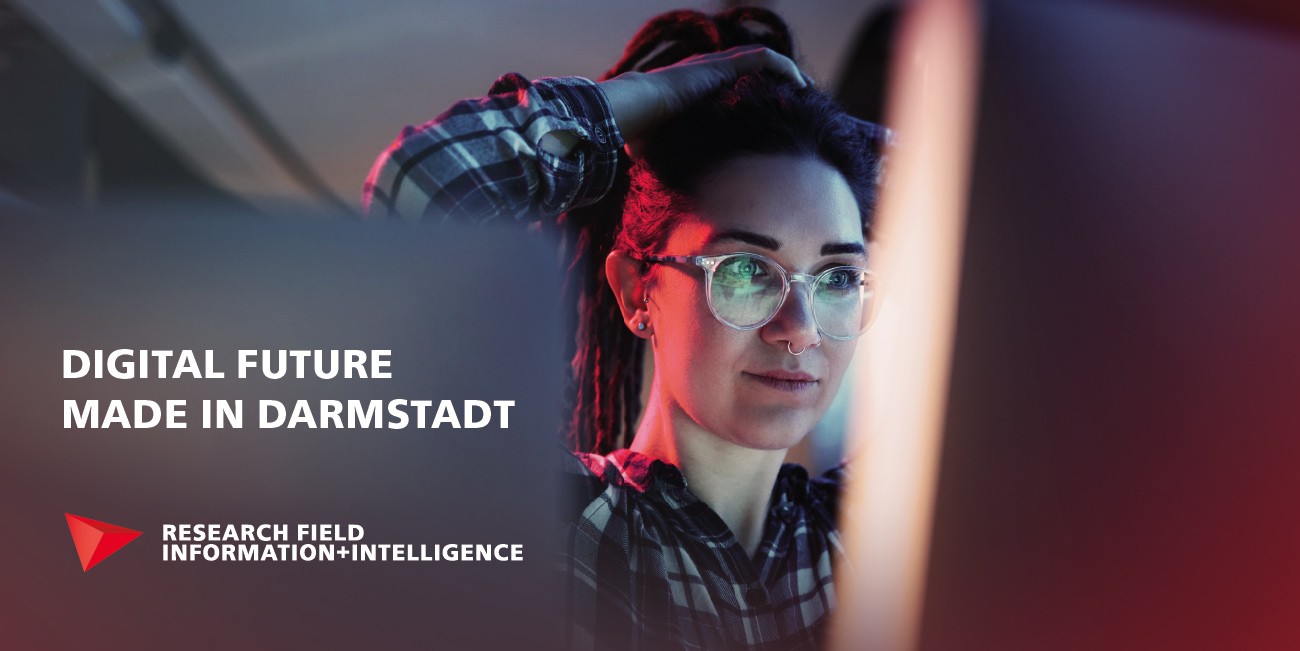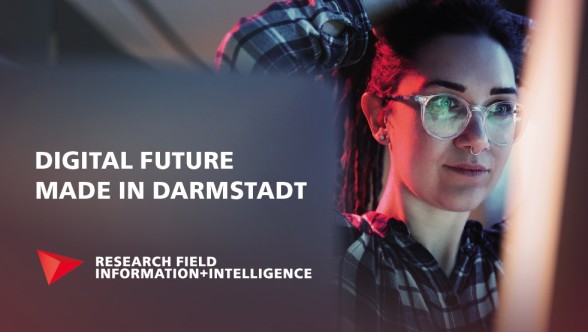
Research Field Information and Intelligence (I+I)
In the Research Field Information and Intelligence, we bundle the research strengths of TU Darmstadt in the internationally recognized profile topics Artificial Intelligence, Cognitive Science, Complex Interconnected Systems and Cybersecurity and Privacy. Moreover, our Research Field connects scientists across disciplines to find answers to major scientific and societal questions on sustainable progress in the digital transformation.

KI made in Darmstadt
Explore the latest developments and research in the field of Artificial Intelligence (AI) at Technische Universität Darmstadt. Learn more about our projects and the excellent minds behind them.





